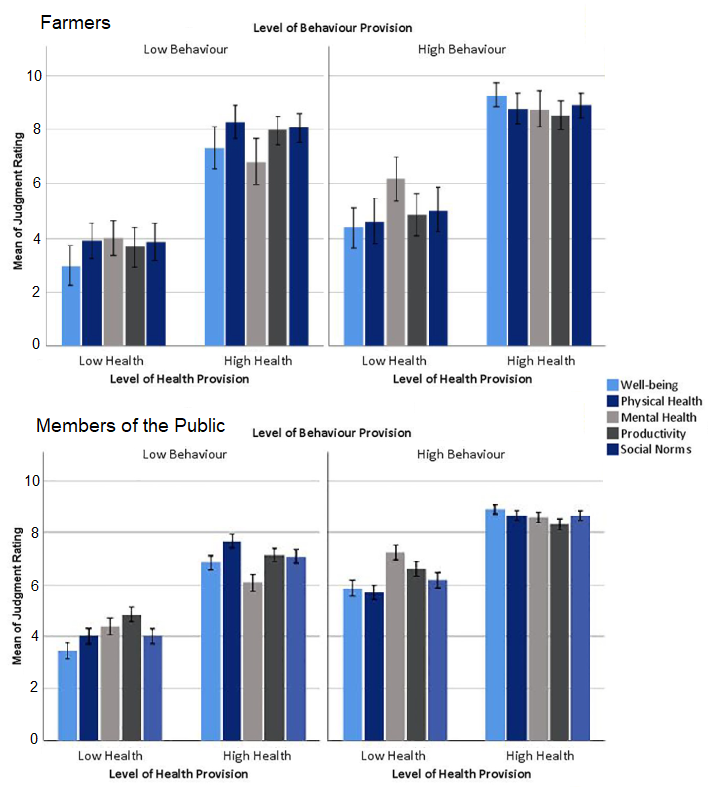Challenges
The importance given to minimising health issues and promoting natural behaviours is a polarising issue within farm animal welfare. It is predominantly thought that members of the public prioritise animals being able to behave naturally over other aspects of farm animal welfare, such as addressing health issues. However, public perspectives may be more multi-dimensional than is generally thought, with the importance given to these different elements of welfare dependent on the situation and state of the animals in question. Amongst farmers there is increasing interest in enabling positive experiences, not just minimizing negative experiences, to improve the welfare of farmed animals.
BioSS Role
Researchers at SRUC designed a novel 2 × 2 factorial survey using vignettes, which experimentally manipulated health (health issues minimized/not minimized) and natural behaviour provision (natural behaviours promoted/not promoted). The survey was completed by both livestock farmers and members of the public. BioSS provided expert statistical advice and support on the use of multivariate methods to capture the within-person correlation in survey responses. Contrary to the predominant view, this study found desire to minimise animal health issues had the greatest effect on both farmers’ and members of the public’s judgements. However, although farmers prioritize the minimization of health issues they want animals to be both healthy and able to express natural behaviours, and individual characteristics are important for understanding farmers' welfare-related judgements. Similarly, in the context of public and private welfare standards seeking to meet public expectations, this study provides important insights into how public perspectives of animal welfare are more nuanced than previously thought, influenced by the context of the animal, the aspect of welfare in question and personal characteristics.

The Figure shows the relative importance given to provision for animal health versus animal welfare by farmers (top) and members of the public (bottom) having accounted for individual characteristics.
Acknowledgements
This work was done in collaboration with Belinda Vigors and Alistair Lawrence at SRUC. It was funded under the Scottish Government's Strategic Research Programme for environment, agriculture and food.


